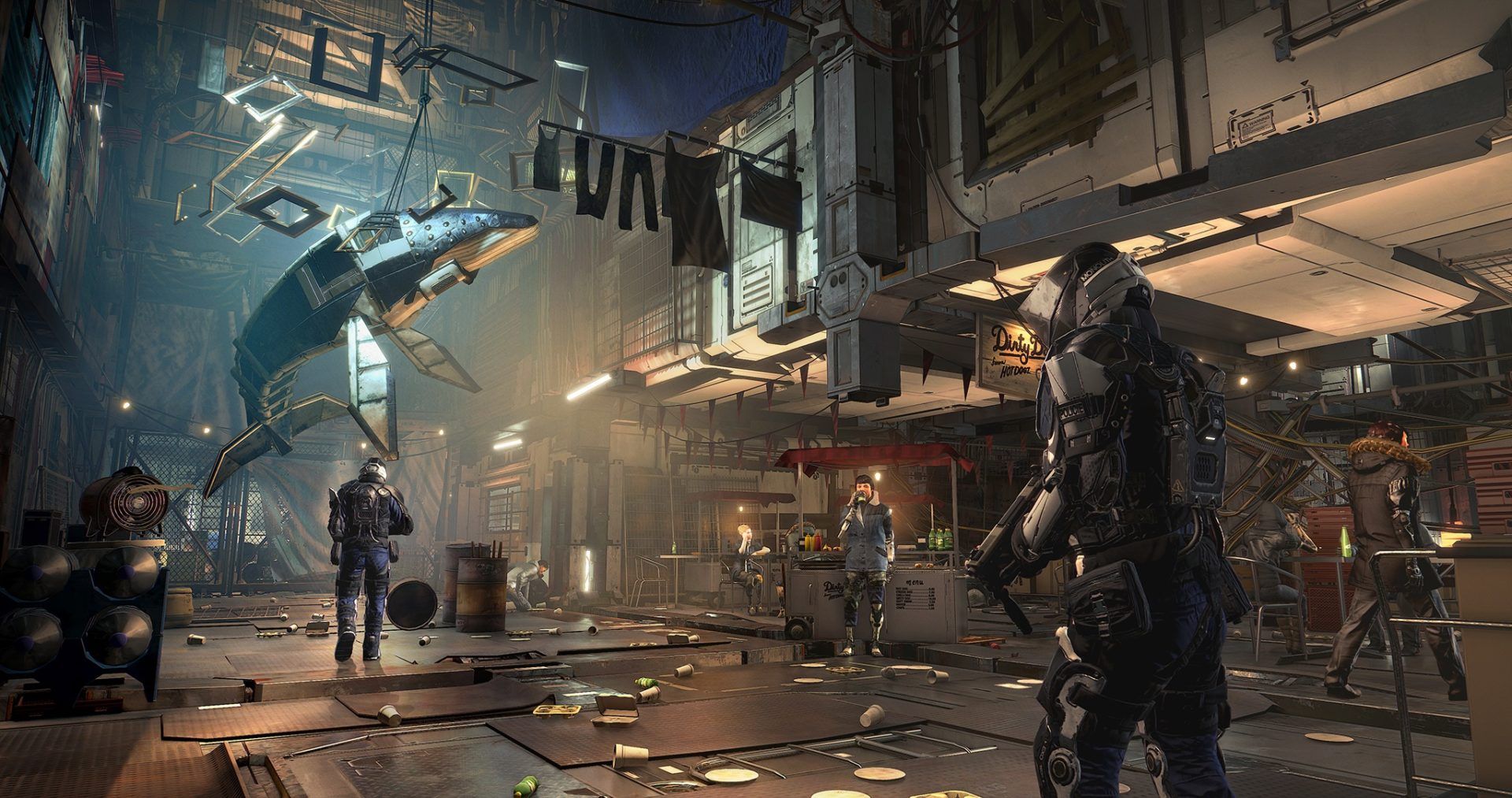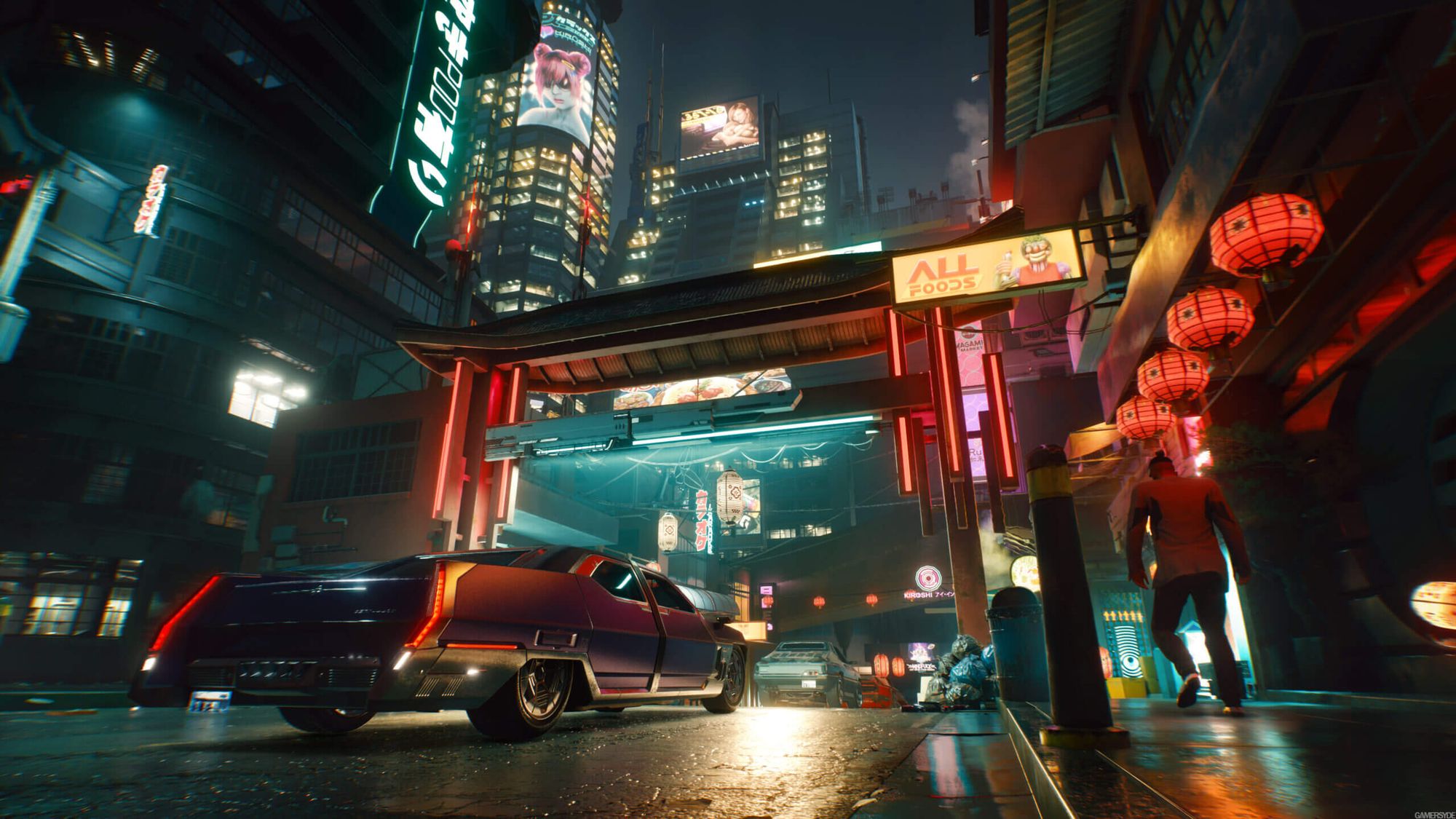How Deus Ex Could Learn From Cyberpunk 2077
Cyberpunk 2077 solves some of the problems introduced in Deus Ex: Mankind Divided

Now that CD Projekt Red’s Cyberpunk 2077 is out of 'early access' I’ve been diving in and throughly enjoying the game. What has stuck out to me is the specific parts of the game I enjoy the most; in other words, the parts I look forward to and hope every single mission is like.
These parts of the game are reminiscent of 2011's Deus Ex: Human Revolution. They are the missions where I have a sandbox to sneak in and slowly pick off targets one-by-one, explore the area through backdoors and service vents, and hack my way through computers, turrets, and cameras.
To take the comparisons further, it's Hitman with more Watch Dogs, or Watch Dogs with more Hitman. It’s that ability to stalk your target but also be able hack things in the environment that I find incredibly immersive.
Missed opportunities
When Deus Ex was first rebooted in 2011, it was a very enjoyable game, had a compelling story, a cyberpunk world, and RPG mechanics that allowed you to chose your own preferred approach. I went fully non-lethal and got the achievement for not killing anyone in the game - certainly the video game achievement I’m most proud of in life. It was a pretty game, albeit very heavy on the yellow filter, and while not purely open world it had open world sections that missions were set in allowing that level of freedom to explore and approach things on your own terms.
Fast forward to the sequel launched in 2016, and we got something that was largely the same - only slightly different - but which didn't impress. I would argue that in the five years between the first and second games, other titles adopted parts of the Deus Ex formula and did these effectively, effectively raising the bar.
Arkane delivered a better immersive sim in Dishonoured and Dishonoured 2, the open world genre exploded with Grand Theft Auto, Watch Dogs, The Witcher 3, and Fallout. RPGs such as Mass Effect, Dragon Age, Skyrim, and Bioshock raised the bar considerably. The expectation that the Deus Ex: Mankind Divided would be a show stopper where high, and while the game initially saw good critical reception, it didn’t have a long shelf life. The gameplay was criticised as being too similar, the AI too simple, the world not open enough, and it was theorised that the game had had content cut out due to how short the game was. This combined with some marketing controversies at launch resulted in drastically less sales than the original and the franchise put on ice, with the studio, Eidos Montreal, being moved onto Tomb Raider.

At the time it felt like they didn’t know where to take the franchise, a theory given credence by the fact they admitted during the development of the first game that they had no plans for a sequel in mind. The premise for the second game had to be invented against the backdrop of the first game and I fear they painted themselves into a corner. Though, admittedly, I didn't know at the time what they could have done to meet those high expectations and I wondered whether the whole Deus Ex/Cyberpunk ‘everything is horrible’ pastiche had run its course.
However, playing Cyberpunk 2077 now I can see where the developers should have taken the sequel.
Finding inspiration in Cyberpunk
I’m not trying to say Eidos should have made Cyberpunk 2077 exactly, that’s not fair or realistic, but they way Cyberpunk is delivered is more effective for numerous reasons.
For one thing, in the Deus Ex games, the whole ‘augments are bad’ was so front and centre it seemed to be the only thing the world cared about and every part of the game was filtered through only that lens. This meant that themes such as cyber-psychosis, the rejection of implants, and cyber gangs were all painted in the same monotone light. This caused a disconnect as you, the player, were augmented and dealing with those issues. It felt very much like ‘Batman-writing’ where everything about you is bad, and anti ‘the system’ but you get a free pass because you’re the exception. It felt like how I imagine the right-wing would write cyberpunk, despite the genre inherently being a criticism of extreme capitalism and authoritarianism.
Contrast this to Cyberpunk 2077 where these issues exist but they are toned down, and juxtaposed against a more fleshed out world. It allows you to bask in all the other realities of the cyberpunk setting and adds nuance and flavour to the world events.
In that same vein, the biomes of Deus Ex was quite limited, whereas Cyberpunk has a decent variety. This mean that Deus Ex was either in an area that was old-dreary looking Prague, modern-but-still-depressing Prague, or the cyberpunk city built out of trash because augmented people aren’t allowed concrete. I want to throw the developers a bone for having a red-light district and leaning into the sex part of cyberpunk but it was still very modest, while Cyberpunk has massive building sized billboards advertising sex sex sex.

When it comes to the gameplay, again, Cyberpunk did it better. Deus Ex really wanted you to invest into either stealth augments or all-out-warfare; the guns felt quite naff, the best weapons ended up being the stun guns as they enhanced the stealthy gameplay. What this meant was that you were locked into one style of gameplay and if you decide to switch things up part way through, you didn’t quite have what you needed to survive. Getting involved in combat half way through a stealth run incentivised me more to reload a save rather than shoot it out, likewise if the brute force approach wasn’t working, needing to do things stealthily when you hadn’t invested in those powers was punishing. Cyberpunk allows for you to be better prepared for both; I tend to invest primarily in the stealth approach of killing silently and not being detected but when the shit hits the fan or I can’t do the stealth approach I'm fully equipped with the best weapons and mods to still feel powerful and not punished for my decisions.
Hacking is very much the same: both games share the same DNA in terms of hacking computers, turrets, cameras, and finding conveniently placed passwords all around the place. However, Cyberpunk introduces the ability to hack other players and mess with their augments, something they can also do to you. It’s an amazing evolution of hacking gameplay and should Deus Ex ever return this should definitely be part of the toolkit.
I had high hopes for the Deus Ex: Mankind Divided , but I think it may have painted itself into a corner continuing from the first game, both thematically and in terms of evolving its systems. I have no doubt the team worked very hard on the game but the experience just wasn't enough of a step forward when compared to the first title. Hopefully we can see the series return in the future and take some learnings from Cyberpunk 2077. I would definitely like to see a more fleshed out world, the chance to choose your character, and more involved combat and hacking mechanics. Now that Cyberpunk has paved the way I’m confident Eidos or whoever Square Enix tasks to do the development can smash it out of the park.
